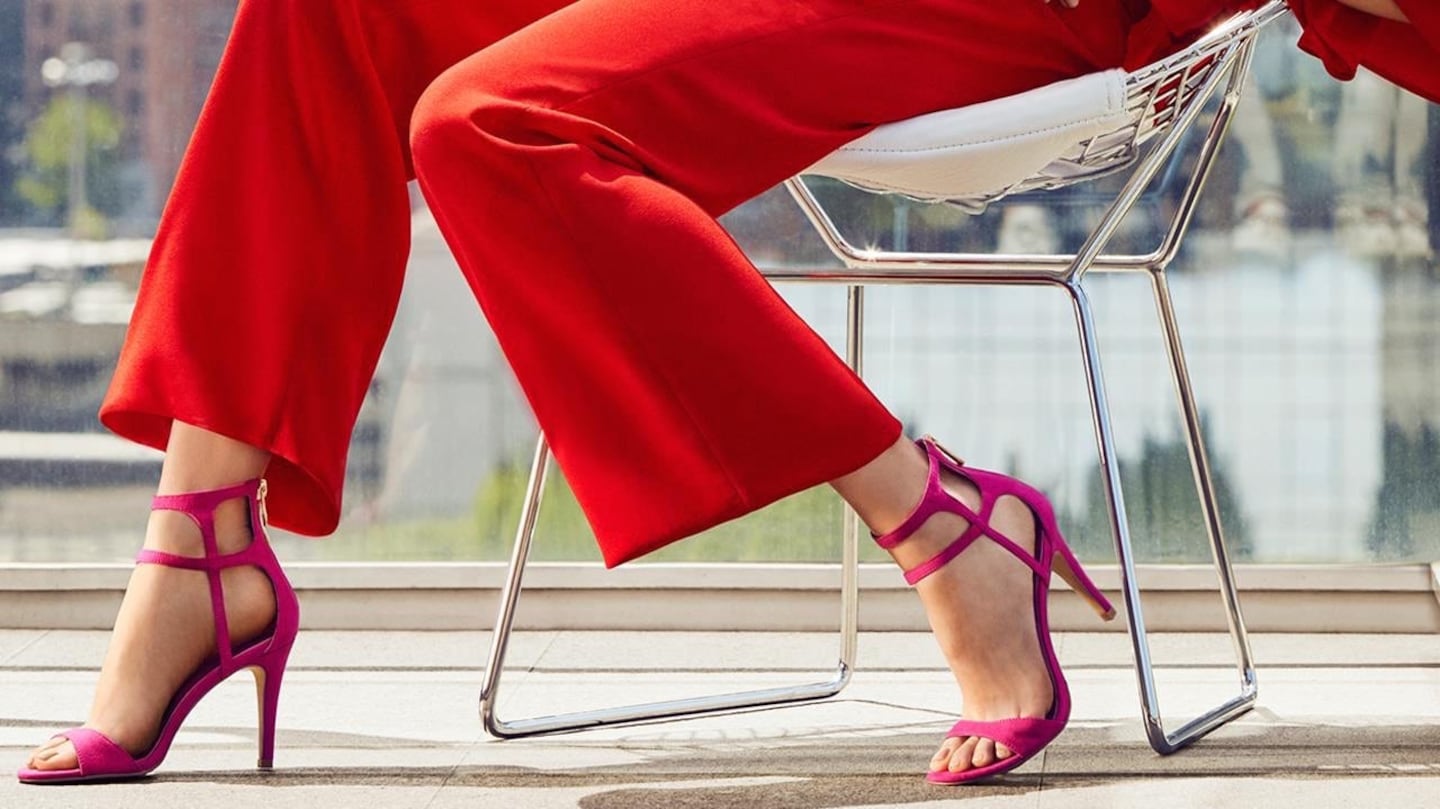
The Business of Fashion
Agenda-setting intelligence, analysis and advice for the global fashion community.

Agenda-setting intelligence, analysis and advice for the global fashion community.

NEW YORK, United States — Nine West, the footwear chain owned by Sycamore Partners LLC, is stumbling toward a financial reckoning as shifting fashions and weak earnings leave the company mired in debt.
With Nine West’s debt ratios hitting levels that rating firms consider unsustainable, lenders and advisers are looking to capitalise on the fallout. Restructuring firms have approached the company and its creditors with proposals to reduce the debt burden, according to people familiar with the matter. They asked not to be identified because the discussions are private.
As Nine West’s financial woes mount, the retailer also has lost cachet in women’s shoes and handbags. A broader slump in apparel and the rise of e-commerce have taken a toll as well.
“The company’s leading position in the US footwear and accessories market is eroding, given the marketing missteps and the quality and fit issues with some of its key brands,” Suyun Qu, an analyst at S&P Global Ratings, said in a report last week. The high debt ratio and money-losing operations are “likely to drive Nine West toward a debt restructuring or exchange over the next year,” she said.
ADVERTISEMENT
Struggling Retailers
The company’s challenges are not unique, as consumers shift their budgets away from clothes and shoes. Americans are spending more of their money on their houses, technology and experiences, leaving less on the table for brick-and-mortar stores.
A slowdown in shopping-centre traffic has hastened the bankruptcy of several retailers over the past year, including Aéropostale Inc. and Pacific Sunwear of California Inc. Other chains, such as J. Crew Group Inc. and Claire’s Stores Inc., have delivered double-digit losses for bondholders, according to Bloomberg Intelligence data.
Nine West’s situation is compounded by about $1.7 billion of debt lingering after a $2.2 billion buyout two years ago by Sycamore, a private equity firm tied to several distressed retailers. Michael Freitag, an external spokesman for Sycamore Partners and Nine West, declined to comment.
Sycamore’s Branches
Nine West was founded in 1978, taking its name from the original street address in Manhattan. The brand aimed to give customers shoes that were both fashionable and affordable. Sycamore bought Nine West’s former parent, Jones Group, in 2014, and then split Nine West into four companies: Nine West, Anne Klein, Easy Spirit and NW Jewelry group.
Five-year-old Sycamore, run by Stefan Kaluzny and Peter Morrow, has bet heavily on retail and has not shied away from struggling merchants. Its portfolio includes Belk, the regional department store; Hot Topic, offering apparel tied to music and pop culture; and Talbots, a retailer of classic women’s apparel.
Most recently it has been embroiled in a fight with Aéropostale, the teen retailer that blamed a Sycamore unit for driving it into bankruptcy. A federal judge shot down that claim, calling it “not credible.” Sycamore lent Aéropostale $150 million in 2014 and is now bidding for its assets.
ADVERTISEMENT
Athletic shoes, including so-called styles such as vulcanized soles, have been the best-performing piece of the footwear sector, said Jeffrey Van Sinderen, a senior analyst at B. Riley & Co. That's not Nine West's strength.
With its fashion focus, the company is in a “tougher spot” right now, he said, especially as key department-store customers cut inventory levels and don’t order merchandise as far in advance.
S&P and Moody’s Investors Service both cut Nine West’s credit rating this month and warned they might downgrade it again, citing poor operations and continuing declines in revenue and earnings. The shoe company also has debt ratios that are well over 20 times earnings.
The outcome could be a debt swap at discounted prices, they predicted. Nine West is rated CCC by S&P and Caa2 by Moody’s, eight levels below investment grade. Its $427 million of 8.25 percent notes due 2019 were quoted at 19 cents on the dollar as of Aug. 29, according to data compiled by Bloomberg.
While the company has enough liquidity to fund operations for now, “probability of default, including the potential for a distressed exchange, is high,” Moody’s analyst Michael Zuccaro said in his report.
Nine West management still has time to find alternatives, with more than $200 million available in a revolver loan and no debt maturities until 2019. Some emerging trends, such as a rebound in denim’s popularity, also could help retailers focused on fashion, Van Sinderen said.
“There’s nothing wrong with the brand, but I think it’s been a little more challenging to be in their niche,” he said. “You can make the greatest product in the world, but retailers just aren’t buying more of it.”
By Lauren Coleman-Lochner and Emma Orr; editors: Nabila Ahmed, Rick Green and Nick Turner.
The company, under siege from Arkhouse Management Co. and Brigade Capital Management, doesn’t need the activists when it can be its own, writes Andrea Felsted.
As the German sportswear giant taps surging demand for its Samba and Gazelle sneakers, it’s also taking steps to spread its bets ahead of peak interest.
A profitable, multi-trillion dollar fashion industry populated with brands that generate minimal economic and environmental waste is within our reach, argues Lawrence Lenihan.
RFID technology has made self-checkout far more efficient than traditional scanning kiosks at retailers like Zara and Uniqlo, but the industry at large hesitates to fully embrace the innovation over concerns of theft and customer engagement.